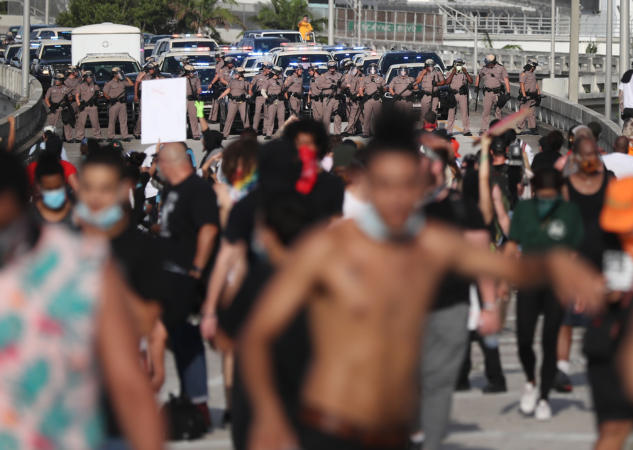The safety of protesters on the frontlines of the rebellions across the country has been a grave concern for many.
Protesters have urged one another to either leave their phones at home or turn off their location services as police officers have been known to use tracking technology to trace protesters and scan their faces in surveillance videos.
Buzzfeed News reported that protesters in Minneapolis are being watched by law enforcement agencies that have trialed or deployed a variety of surveillance tools.
To combat surveillance tools used to target these protesters, Adobe shared that they offer several editing programs to help blur faces out of people’s content, USA Today reports.
Unlike Photoshop — which only includes effects that help blur unwanted faces from pictures — video editing apps such as Adobe Premiere and After Effects helps to seal the identities of faces included in videos.
According to USA Today, Adobe offers a variety of prices for their monthly subscriptions that grant access to these tools, but users can acquire all apps in adobe’s roster for $52.99 a month.
Other face-blurring tools people can lean on right now are Skitch and Blur and Mosaic — which blur out images — as well as Wondershare Filmora, Movavi, KineMaster, and YouTube’s face-blurring tool in YouTube Studio, which blur videos.
In regards to the use of these surveillance tools to punish protestors, senior legislative counsel for the ACLU, Neema Singh Guliani told Buzzfeed News:
“At a high level, these surveillance technologies should not be used on protesters. The idea that you have groups of people that are raising legitimate concerns and now that could be subject to face recognition or surveillance, simply because they choose to protest, amplifies the overall concerns with law enforcement having this technology to begin with.”
Marketplace reports that the facial-recognition tool — known as Clearview AI — has been used by dozens, if not hundreds, of law enforcement agencies.
Buzzfeed News also shared that Rich Neumeister, a Minneapolis resident, shared a written testimony with the city’s subcommittee urging the city to place restrictions on the technologies.
“There needs to be guardrails, standards, and curtailing policies so that the use and rules are not developed by law enforcement agencies in secret,” he said. “Our privacy and civil liberties can be diminished if this onerous and powerful technology is not kept in check.”
Tools provided by companies like Adobe can make all the difference in equipping Black protesters with the protection they need to safely exercise their first amendment rights.

